Government can't let smartphones be black boxes, Obama says
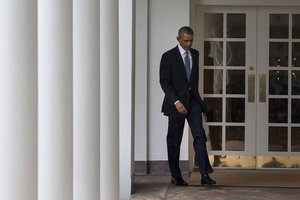 President Barack Obama said Friday that smartphones -- like the iPhone the FBI is trying to force Apple Inc. to help it hack -- can’t be allowed to be "black boxes," inaccessible to the government. The technology industry, he said, should work with the government instead of leaving the issue to Congress.
President Barack Obama said Friday that smartphones -- like the iPhone the FBI is trying to force Apple Inc. to help it hack -- can’t be allowed to be "black boxes," inaccessible to the government. The technology industry, he said, should work with the government instead of leaving the issue to Congress.
"You cannot take an absolutist view on this," Obama said at the South by Southwest festival in Austin, Texas. "If your argument is strong encryption no matter what, and we can and should create black boxes, that I think does not strike the kind of balance we have lived with for 200, 300 years, and it’s fetishizing our phones above every other value."
Read moreApple and Google push Obama to prevent encryption backdoors
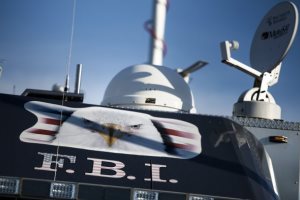
Major tech companies have urged President Obama not to give the FBI backdoor access to smartphone data. Security specialists and privacy groups stating that strong encryption is the cornerstone of the modern information economy's security.
All of the players feel that it's impossible to build a backdoor for governments in email, cellphone encryption and other communications without creating vulnerabilities that can be exploited by hackers or hostile nations. Obama previously said that while he's in favor of stronger encryption, the only concern is our law enforcement is expected to stop every (terrorist) plot.
Read moreRussian hackers read Obama’s unclassified Emails
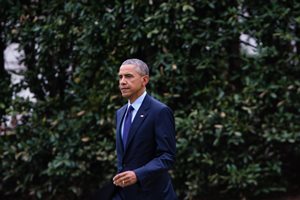 Some of President Obama’s email correspondence was swept up by Russian hackers in a breach of the White House’s unclassified computer system that was far more intrusive and worrisome than has been publicly acknowledged.
Some of President Obama’s email correspondence was swept up by Russian hackers in a breach of the White House’s unclassified computer system that was far more intrusive and worrisome than has been publicly acknowledged.
The hackers do not appear to have penetrated closely guarded servers that control the message traffic from Mr. Obama’s BlackBerry, which he or an aide carries constantly. But they obtained access to the email archives of people inside the White House, and perhaps some outside, with whom Mr. Obama regularly communicated.
Read moreRussians hacked the White House
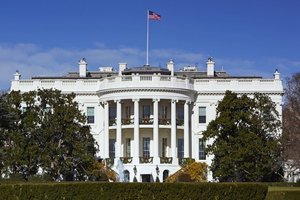 Russian hackers behind the damaging cyber intrusion of the State Department in recent months used that perch to penetrate sensitive parts of the White House computer system, according to U.S. officials briefed on the investigation.
Russian hackers behind the damaging cyber intrusion of the State Department in recent months used that perch to penetrate sensitive parts of the White House computer system, according to U.S. officials briefed on the investigation.
While the White House has said the breach only affected an unclassified system, that description belies the seriousness of the intrusion. The hackers had access to sensitive information such as real-time non-public details of the president's schedule. While such information is not classified, it is still highly sensitive and prized by foreign intelligence agencies, U.S. officials say.
Read moreObama authorizes sanctions against hackers
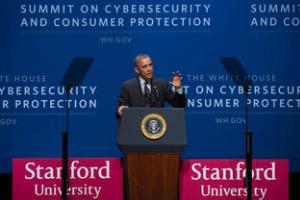 President Barack Obama is taking aim at "malicious cyber actors" who attempt to profit from digital attacks on US interests. An executive order to impose sanctions on cyberattackers hacking into the networks of US companies or government agencies.
President Barack Obama is taking aim at "malicious cyber actors" who attempt to profit from digital attacks on US interests. An executive order to impose sanctions on cyberattackers hacking into the networks of US companies or government agencies.
The White House aims to make it hard for hackers to profit from stolen information. After identifying the people behind a cyberattack the USA could impose sanctions that would prevent US companies from doing business with them. Individuals would also be banned from traveling to the United States. This new executive order is specifically designed to be used to go after the most significant malicious cyber actors.
Read moreObama reveals old passwords
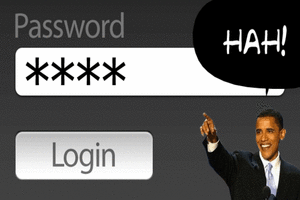 President Obama’s digital security leaves something to be desired. In remarks at a cybersecurity summit at Stanford University, Obama admitted he's used some passwords that are pretty easy for cyber criminals to access.
President Obama’s digital security leaves something to be desired. In remarks at a cybersecurity summit at Stanford University, Obama admitted he's used some passwords that are pretty easy for cyber criminals to access.
The glib comment speaks to a deeper vulnerability about many people’s use of passwords, which are often simplistic and unoriginal. Those weak passwords don’t pose much of a challenge to hackers and have made it easier for them to intrude into people’s personal or corporate networks. As more and more information about people’s communications, travels and lives moves online, security experts have pushed for a move toward more secure authentication systems.
Read moreObama to outline new cybersecurity measures
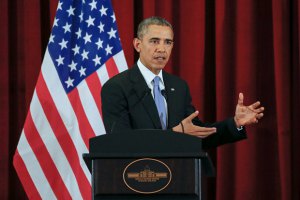 President Obama will announce new initiatives next week designed to bolster online security and improve access to cyberspace.
President Obama will announce new initiatives next week designed to bolster online security and improve access to cyberspace.
In a series of speeches, Mr. Obama will call for better safeguards against identity theft, improved privacy protection, enhanced cybersecurity for the government and private companies, and increased access to high-speed broadband connections across the country. A White House official said in a statement to reporters that the president would lay out a series of legislative proposals and executive actions that will be in his State of the Union that will tackle identity theft and privacy issues, cybersecurity, and access to the Internet.
Read moreA conversation with White House cybersecurity czar Michael Daniel
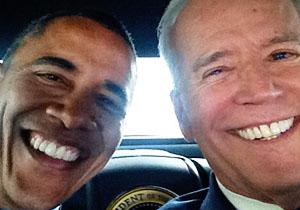 Does the US lack cybersecurity manpower? Even if it adds thousands of security pros, can Washington stay ahead of the hackers? And how can the federal government compete for top talent with the likes of Facebook, Google, and Twitter?
Does the US lack cybersecurity manpower? Even if it adds thousands of security pros, can Washington stay ahead of the hackers? And how can the federal government compete for top talent with the likes of Facebook, Google, and Twitter?
Michael Daniel has been on a recruitment drive since becoming White House Cybersecurity Coordinator more than two years ago. He’s been on the hunt for more skilled security pros to join the government’s fight against criminal hackers, as well as championing the cause for an all-around more digitally vigilant workforce.
Read moreCisco boss calls on Obama to rein in surveillance
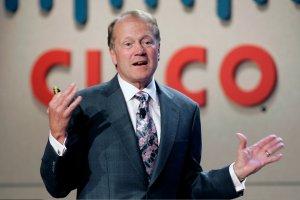 Cisco’s chief executive has written to President Barack Obama warning of a collapse of trust in US technology after evidence emerged showing the National Security Agency breaking into his company’s equipment.
Cisco’s chief executive has written to President Barack Obama warning of a collapse of trust in US technology after evidence emerged showing the National Security Agency breaking into his company’s equipment.
In a letter John Chambers called for “standards of conduct” to rein in government surveillance so that national security objectives do not interfere with the US’s leading position in the global technology market. The letter was dated the day after pictures circulated on the internet showing NSA staff opening boxes of Cisco gear so that the US security agency can monitor internet traffic after the equipment has been shipped to customers. Mr Chambers complained that the NSA actions would undermine confidence among customers of US technology firms.
Read moreSupreme Court in the U.S. takes up police power to search cell phones
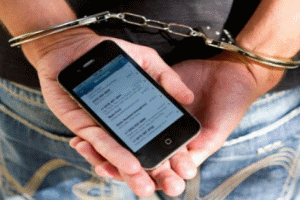 The Supreme Court on Tuesday will take up a hot-button issue of privacy in the digital age: Can police, without a warrant, rummage through the cell phones of people they arrest? It's an important case, given that more than 90 percent of American adults now own a cell phone and 58 percent have a smart phone.
The Supreme Court on Tuesday will take up a hot-button issue of privacy in the digital age: Can police, without a warrant, rummage through the cell phones of people they arrest? It's an important case, given that more than 90 percent of American adults now own a cell phone and 58 percent have a smart phone.
And more than 12 million people are arrested in the U.S. each year, most of them for minor offenses, such as drunk driving or getting in fights. Police also have authority to make arrests for fine-only infractions like driving without a seat belt, littering, or jaywalking. So, allowing police to search the text, photo, and video files on all of those smart phones would severely compromise personal privacy, says Jeffrey Fisher of Stanford Law School.
Read moreAxarhöfði 14,
110 Reykjavik, Iceland















